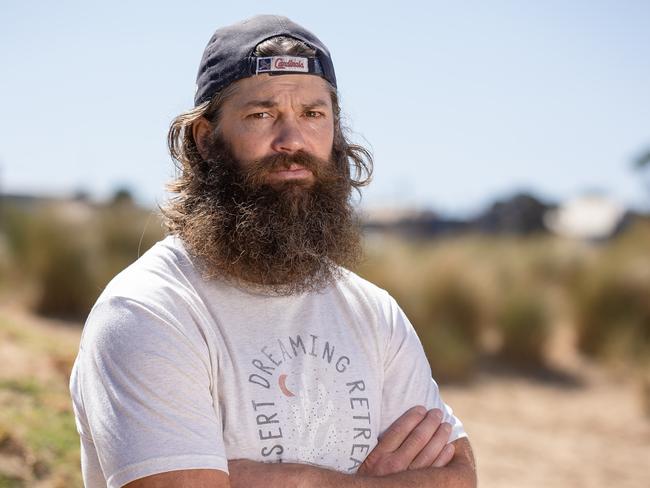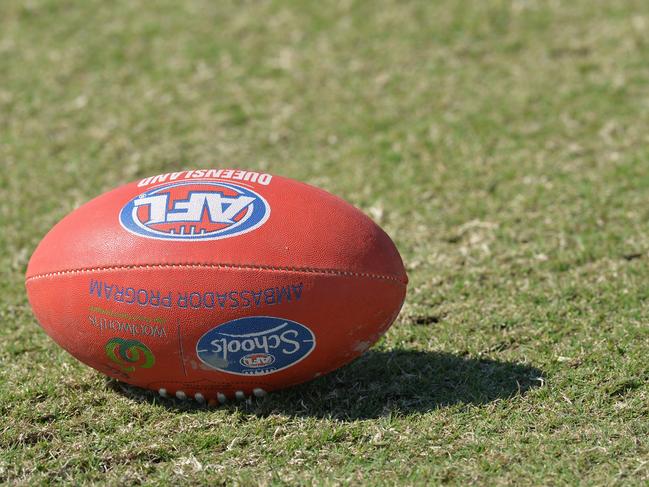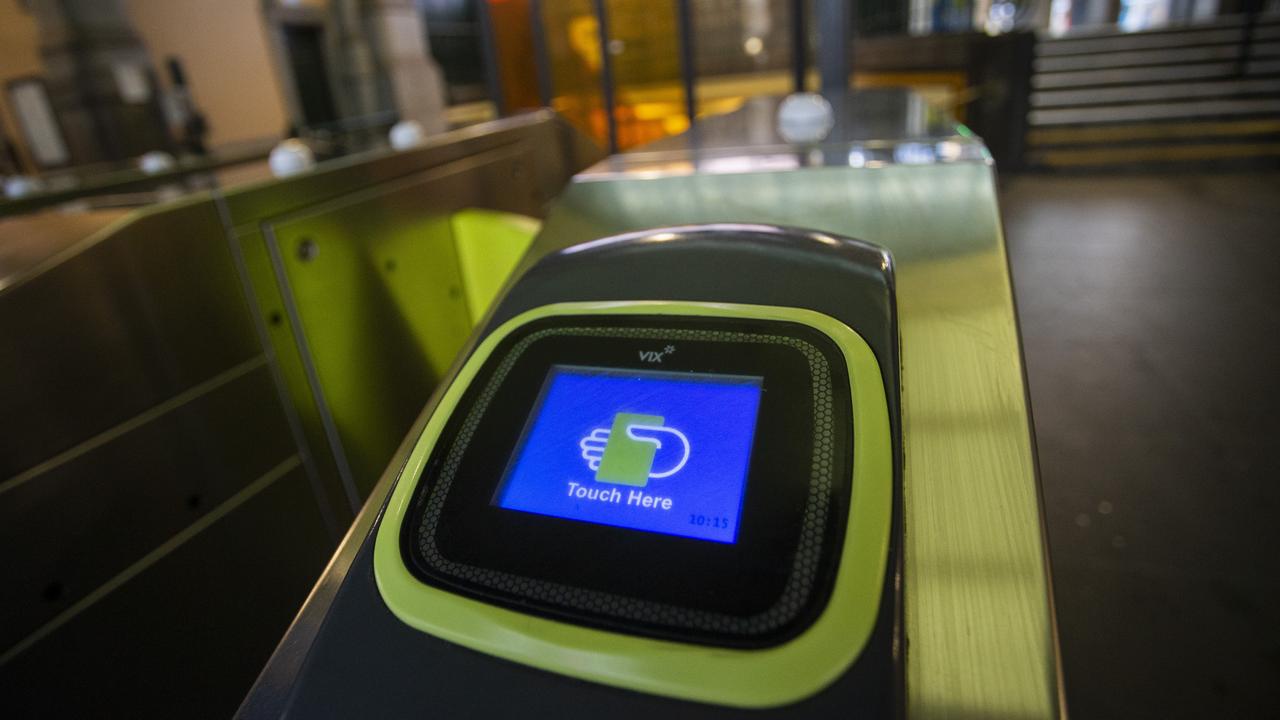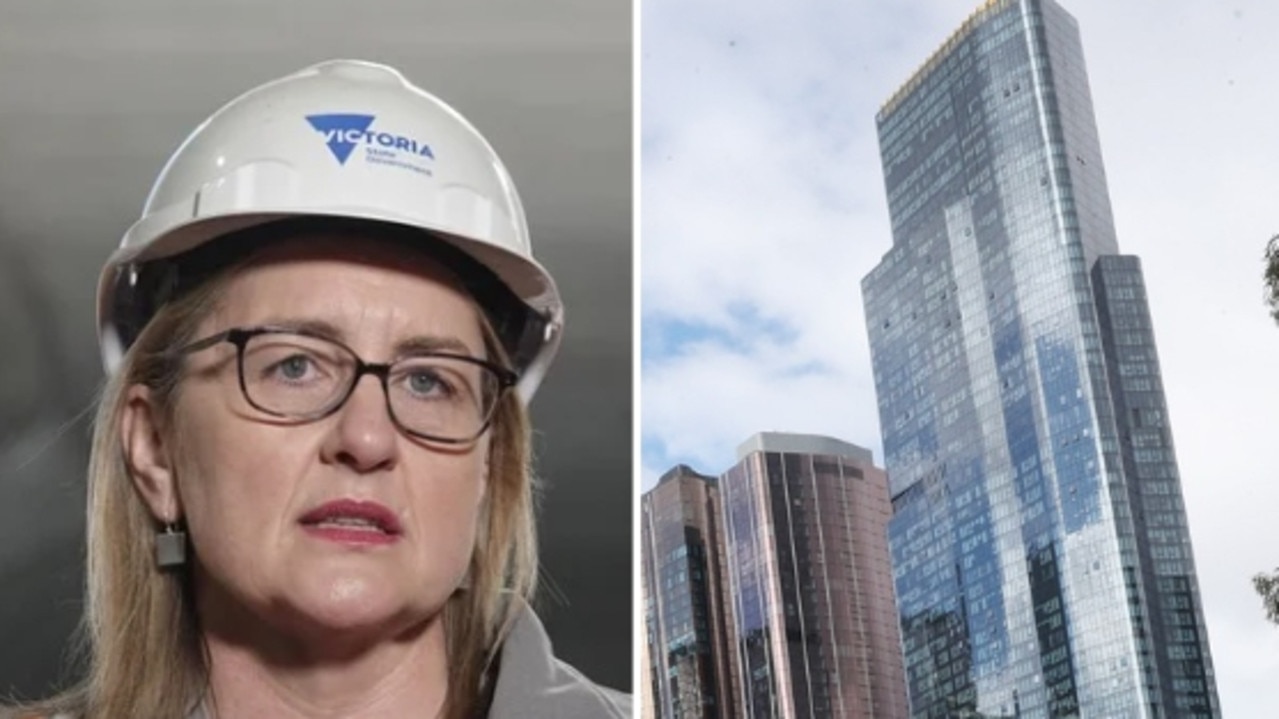Footy players suing the AFL look to add 18 clubs to concussion class action
Footy players suing the AFL in a mass concussion class action, led by ex-Geelong star Max Rooke, are now looking to add all 18 clubs as defendants in the lawsuit.

Victoria
Don't miss out on the headlines from Victoria. Followed categories will be added to My News.
Footy players suing the AFL in a mass concussion class action are now looking to add all 18 clubs as defendants in the lawsuit.
Lead plaintiff, ex-Geelong star and dual premiership player Max Rooke, has applied to the Supreme Court to amend the case and add all 18 clubs to the action.
It comes as the class action group members – which include almost 100 former players and family of players who died since retiring – have asked the court to keep their identities secret.
The plaintiffs claim that the league failed to implement reasonable concussion protocols, with Rooke claiming to have suffered 23 head knocks during his career.
Barrister Stella Gold, for Rooke and the group members, said the bid to add the clubs came after the AFL lodged a defence stating that the players were “employees of the clubs and on that basis the clubs were responsible for their health and welfare”.

The league argues that the players knew and accepted the risks of playing the sport, and that it changed the rules 30 times since 2000.
But barrister Ben Ihle, for the AFL, said it was “misconceived” to add the clubs to the case, arguing that Rooke doesn’t have a cause of action against 17 of the clubs he wants to include because he didn’t play for them.
Justice Andrew Keogh said in court on Friday that one way to resolve the issue was by adding Geelong FC, which Rooke played for, and other clubs other plaintiffs played for.
“One of my concerns is that if we had 19 defendants and 19 plaintiffs, a proceeding such as this would be potentially exceedingly difficult to manage, very costly, time consuming, and it will take a long while to get to trial,” His Honour said.
Justice Keogh said the case, which had been on foot for 18 months, would be stalled over the defendant fight.
Meanwhile, the plaintiffs were seeking “additional confidentiality protections” to ensure their identities weren’t made public.

Ms Gold said group members had expressed concern because many of them “have past, current or hope to have future involvement with (the AFL).”
She said there was a “reasonably held fear” that if the list of group members wasn’t protected, their interests might be “unduly infringed”.
“It’s not only that they are bringing a claim … but they’re alleging that they suffered a brain injury as a result of that,” Ms Gold said.
Mr Ihle said a court order to hand over the list of group members to the AFL hadn’t been complied with due to concerns over “hypothetical leaking of information”.
He argued further protection was “unnecessary” because there was already a prohibition from sharing court documents for ulterior reasons.
Justice Keogh asked whether the list could “go to anyone in the AFL?”
“No,” Mr Ihle replied, before the judge asked, “Why not?”
Mr Ihle said only those providing instructions for the case could be given court material under the rules, and “the vast majority of the officers of the AFL would have no need to see the list”.
“Only those persons within the AFL involved in providing instructions and receiving advice (in the case) will be privy to the list,” Mr Ihle said.
Ms Gold said “that clarification is of great comfort and we’ll seek instructions on that”.
The case was adjourned to a later date.



